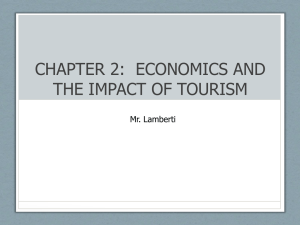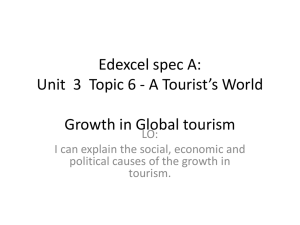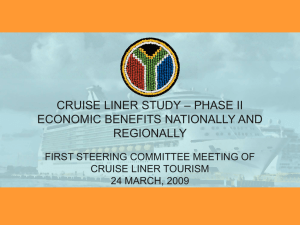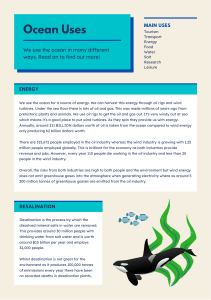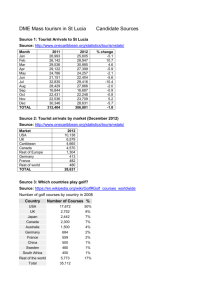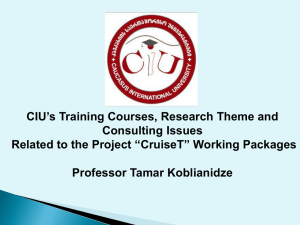Int_Unit5_Lesson5c
advertisement
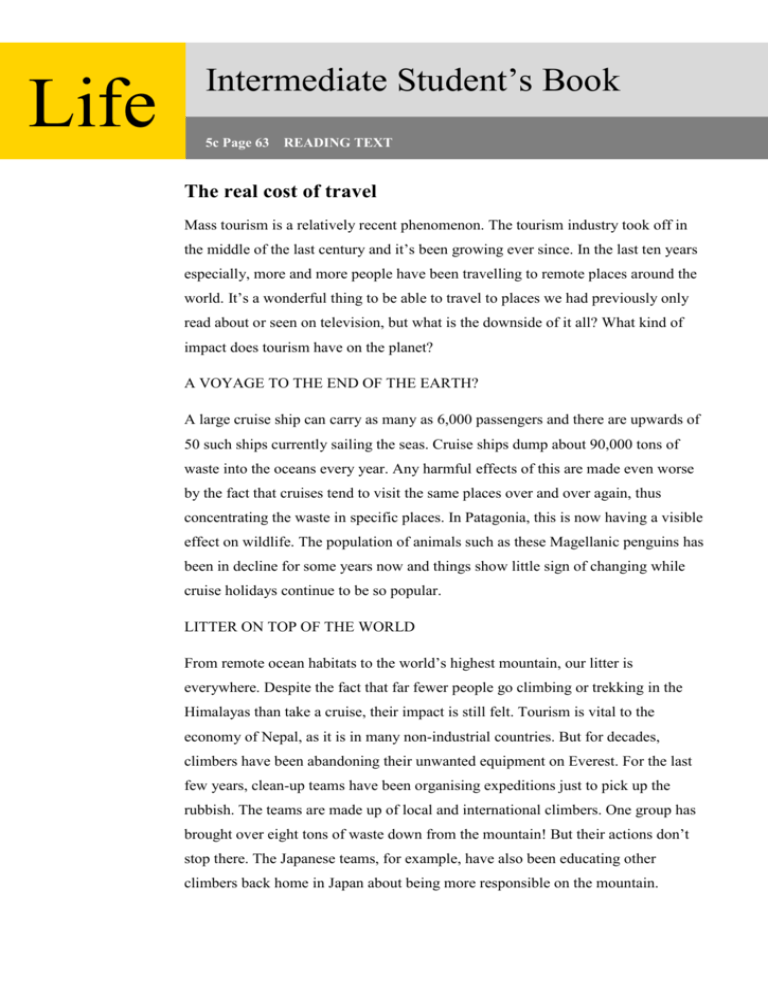
Life Intermediate Student’s Book 5c Page 63 READING TEXT The real cost of travel Mass tourism is a relatively recent phenomenon. The tourism industry took off in the middle of the last century and it’s been growing ever since. In the last ten years especially, more and more people have been travelling to remote places around the world. It’s a wonderful thing to be able to travel to places we had previously only read about or seen on television, but what is the downside of it all? What kind of impact does tourism have on the planet? A VOYAGE TO THE END OF THE EARTH? A large cruise ship can carry as many as 6,000 passengers and there are upwards of 50 such ships currently sailing the seas. Cruise ships dump about 90,000 tons of waste into the oceans every year. Any harmful effects of this are made even worse by the fact that cruises tend to visit the same places over and over again, thus concentrating the waste in specific places. In Patagonia, this is now having a visible effect on wildlife. The population of animals such as these Magellanic penguins has been in decline for some years now and things show little sign of changing while cruise holidays continue to be so popular. LITTER ON TOP OF THE WORLD From remote ocean habitats to the world’s highest mountain, our litter is everywhere. Despite the fact that far fewer people go climbing or trekking in the Himalayas than take a cruise, their impact is still felt. Tourism is vital to the economy of Nepal, as it is in many non-industrial countries. But for decades, climbers have been abandoning their unwanted equipment on Everest. For the last few years, clean-up teams have been organising expeditions just to pick up the rubbish. The teams are made up of local and international climbers. One group has brought over eight tons of waste down from the mountain! But their actions don’t stop there. The Japanese teams, for example, have also been educating other climbers back home in Japan about being more responsible on the mountain. Life WHEN MORE IS NOT BETTER It’s tourism of a different kind which is causing problems in Europe. Construction on the Mediterranean coast has been spiralling out of control for years. Beach resorts form an almost unbroken line from Gibraltar to Greece and natural habitats have disappeared under kilometres of concrete. And so we pollute the sea, the land – and the air. Low-cost air travel is booming, in spite of (or perhaps helped by) economic problems in so many countries. Many Europeans consider that low-cost flights are ideal, allowing them to take several short holidays over the course of a year. Yet curiously, short flights actually have a much bigger effect on climate change than long-haul flights. So, are there alternative, less damaging ways of seeing the world? Rail travel, for example, is a much greener way of getting around. And many places have been experimenting with low-impact tourism such as ecotourism. It’s time to ask ourselves some difficult questions. Have we, perhaps, been destroying the very places we value as holiday ‘escapes’? damaging (adj) /ˈdamɪdʒɪŋ/ destructive decline (n) /dɪˈklaɪn/ a fall, a reduction downside (n) /ˈdaUnsaɪd/ the negative aspect upwards of (adv) /ˈʌpwədzəv/ more than






